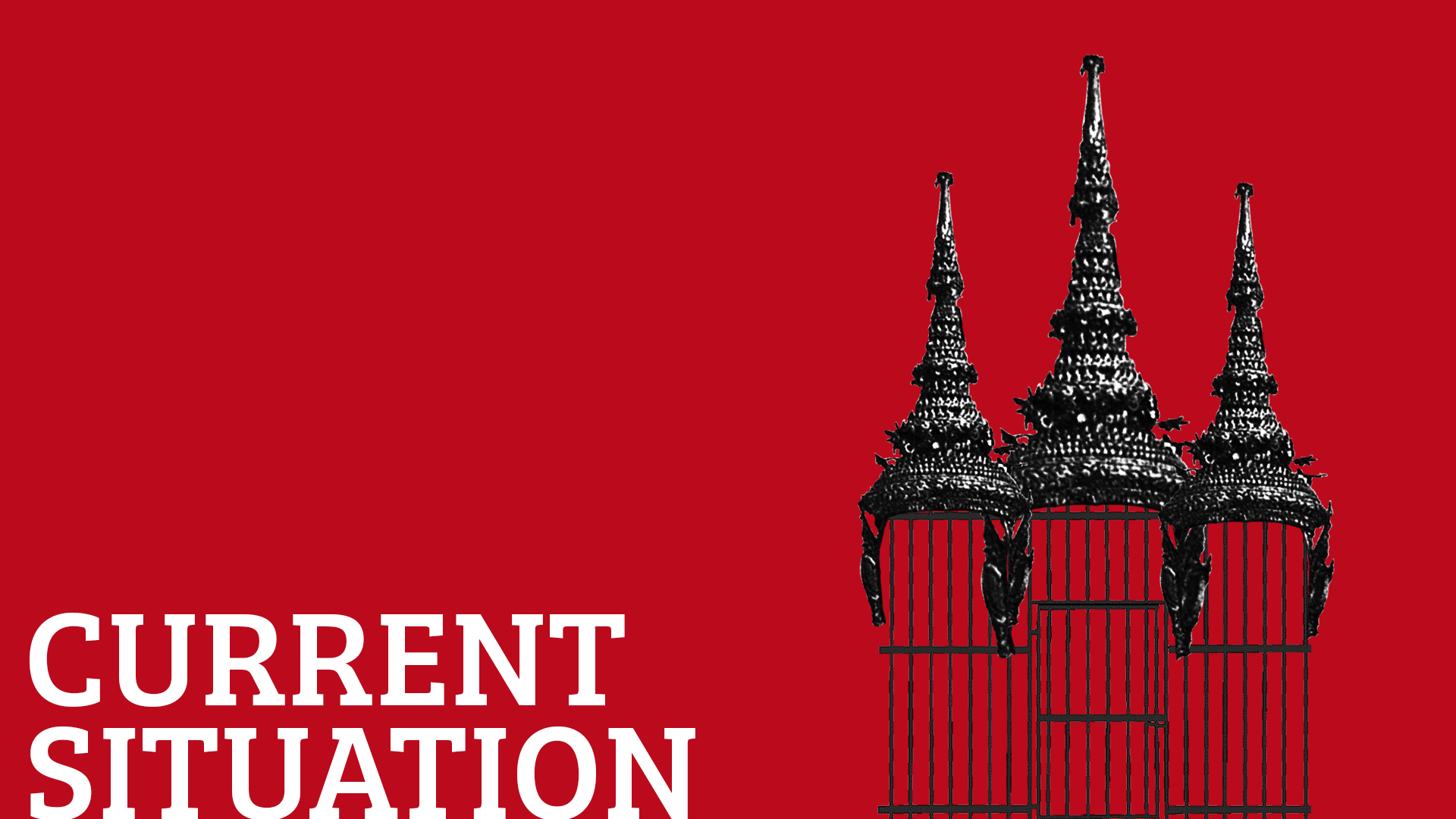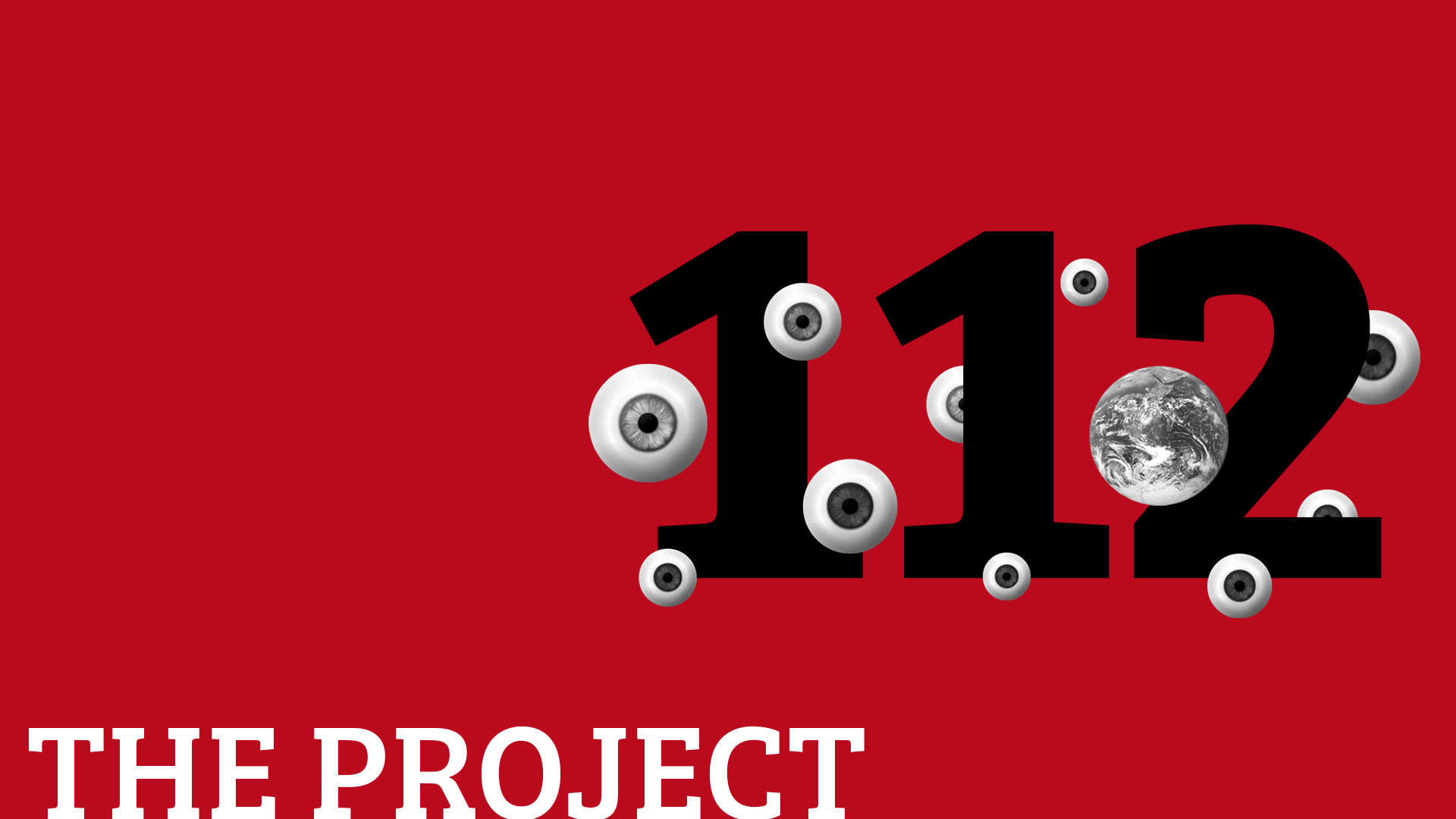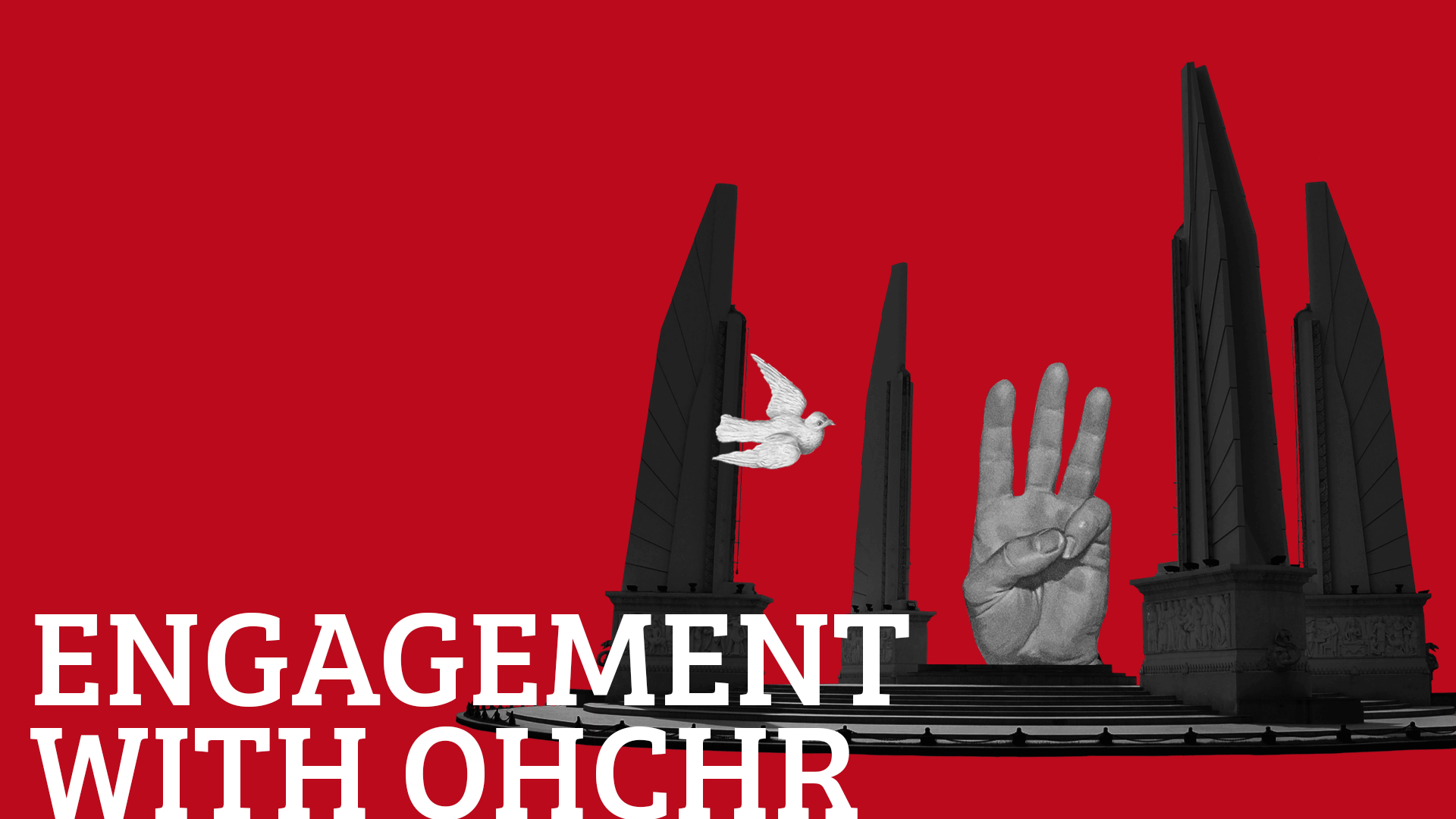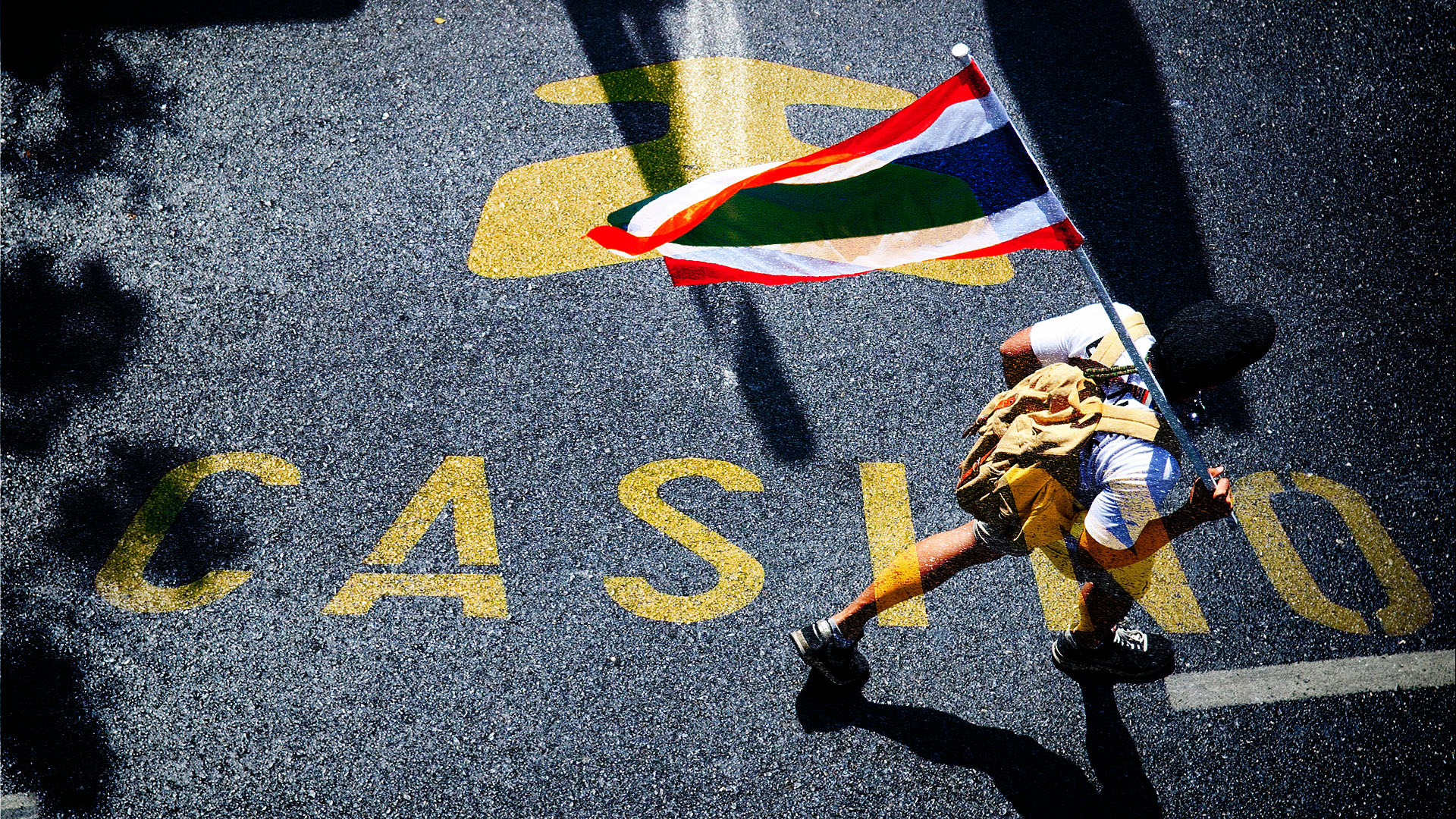
Bangkok's Deadly Bargain Between Royals and Politicians
The troubling elevation of casino legislation over disaster response ultimately raises the most fundamental question facing any democracy: does government exist to serve its citizens, or do citizens exist to serve the economic and political interests of those holding power?
April 6, 2025
Thailand's recent political turmoil and natural disaster present a disturbing portrait of governance in crisis, where the timing of a controversial casino bill amid earthquake devastation exposes a grotesque truth: Has Bangkok's political establishment, puppeteered by royal and military powers, has coldly sacrificed its citizens on the altar of gambling profits? The juxtaposition of these events strips bare the country's corrupt power dynamics, revealing a system where democracy has become nothing more than theater while elites divide the spoils of a nation in pain.
Bangkok's Deadly Political Gamble
Prime Minister Paetongtarn Shinawatra's recent survival of a no-confidence vote belies deeper issues within Thailand's political landscape. While she and her cabinet technically prevailed against challenges from the opposition People's Party (Prachachon), this victory appears increasingly hollow as public faith in the Puea Thai Party deteriorates. Political analysts suggest this erosion of trust may presage a significant shift in upcoming elections, with predictions of a landslide victory for the People's Party that would eliminate the need for coalition building altogether. This potential realignment signals growing disillusionment with Thailand's current leadership structure and could represent a sea change in the nation's political equilibrium.
Adding to the government's challenges, a series of earthquakes has devastated Bangkok and surrounding regions, with the collapse of the State Audit Office (SAO) building—a structure valued at 2.241 billion baht (approximately $65.5 million USD)—resulting in significant casualties. This disaster has become emblematic of the administration's perceived failures, as questions mount regarding building safety standards, emergency response protocols, and governmental oversight. The devastating human cost of this collapse has transformed what might have been viewed as a natural disaster into a political crisis, one that highlights potential corruption and negligence within Thailand's regulatory systems.
The public outcry intensified upon revelations that while Bangkok residents struggled with the earthquake's aftermath, the Prime Minister and her cabinet were vacationing in Phuket. This apparent disconnect between leadership responsibility and privilege has fueled calls for Paetongtarn's resignation. The image of government officials enjoying leisure activities while citizens search for missing loved ones trapped in rubble presents a damning indictment of leadership priorities. This perceived indifference has further undermined the government's legitimacy at a moment when decisive action and visible solidarity with affected communities would have been expected from effective leadership.
Perhaps most troubling is the subsequent parliamentary maneuver by House Speaker Wan Muhamad Noor Matha, who called for an urgent motion to introduce a casino bill draft and entertainment complex legislation amid the ongoing search and rescue efforts. This prioritization appears deeply incongruous with the nation's immediate humanitarian needs. The opposition's demand to prioritize earthquake response over gambling legislation reflects a fundamental tension in governance philosophy: should immediate citizen welfare supersede potential economic developments, regardless of how lucrative those developments might be?
The timing and urgency with which this casino legislation has been advanced suggest powerful interests operating behind the scenes. The apparent pressure from the Pheu Thai party on Wan Muhammad Noor points to complex political machinations that transcend normal legislative processes. More fundamentally, this sequence of events raises profound questions about the true power structures in Thailand and whom elected officials ultimately serve. The rush to advance gambling legislation while citizens remain trapped under rubble creates a disturbing impression of a government whose priorities lie not with its people but with powerful economic and political interests.

How the Crown Controls Thailand's Crisis Response
Predominantly, it is even more troubling possibility: that the relationship between Thaksin Shinawatra, the Puea Thai party, and King Maha Vajiralongkorn (Rama X) takes precedence over public welfare. The determination to advance the entertainment complex and casino legislation regardless of circumstances indicates that these business interests likely represent more than simple economic development—they may constitute a power-sharing arrangement between Thailand's political and royal establishments. This prioritization reveals how thoroughly the government appears captured by royal and military influence, functioning less as an independent democratic entity and more as an administrative arm of these traditional power centers.
The casino bill itself warrants careful scrutiny beyond its problematic timing. While proponents might frame such development as economic stimulus that could generate tourism revenue and employment opportunities, the social implications of expanded gambling access raise significant concerns. Research consistently demonstrates that gambling establishment proliferation often exacerbates addiction problems, financial instability among vulnerable populations, and associated social challenges including crime and family breakdown. That such legislation would take priority over earthquake response suggests either profound tone-deafness or deliberate calculation that economic interests of certain elites outweigh these social considerations.
Thailand's political landscape has long featured complex interrelationships between elected officials, royal influence, and military power. The current situation exemplifies how these dynamics can undermine democratic principles when crisis strikes. While Thailand maintains democratic institutions in form, situations like the present one raise questions about their functional independence and responsiveness to citizen needs rather than elite interests. The earthquake and subsequent political responses have stripped away pretense, exposing governance mechanisms that appear fundamentally misaligned with democratic ideals.
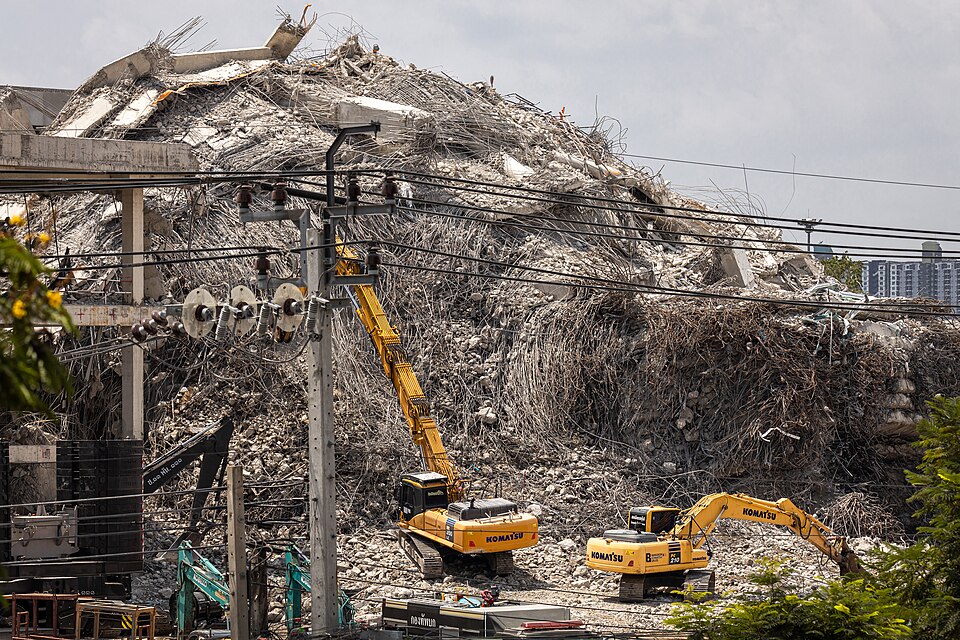
Democracy Abandoned Amid the Rubble
Historical context adds another dimension to understanding current events. Thailand has experienced multiple coups and constitutional crises over recent decades, with the military frequently intervening in political processes. The Shinawatra family's political fortunes have ebbed and flowed through these upheavals, with Thaksin himself removed by military coup in 2006 and his sister Yingluck similarly ousted in 2014. Paetongtarn's position as Prime Minister represents the family's continued resilience in Thai politics but also raises questions about whether democratic institutions have been captured by family interests rather than truly serving the broader population. The casino legislation controversy suggests that, regardless of which faction holds nominal power, certain economic arrangements between elites remain prioritized over responsive governance.
The earthquake disaster also exposes infrastructure and regulatory failures that transcend immediate political controversies. That a relatively new government building worth billions of baht could collapse raises serious questions about construction standards, inspection processes, and possible corruption in development projects. These systemic issues reflect governance failures that extend beyond any single administration and point to deeper structural problems in Thailand's regulatory environment. The human cost of these failures—measured in lives lost—stands in stark contrast to the apparent urgency given to gambling legislation rather than infrastructure safety reform.
International observers have noted these developments with concern. Thailand's response to natural disaster and subsequent political prioritization sends troubling signals about governance standards in a nation that has traditionally positioned itself as a regional leader. Neighboring countries providing earthquake assistance might reasonably question why their rescue teams are searching for survivors while Thailand's parliament debates gambling expansion. This disconnection risks damaging Thailand's regional standing and international relationships at a moment when collaborative emergency response should be paramount.
For ordinary Thai citizens, these events likely reinforce growing cynicism about political institutions. When government appears captured by elite interests to such an extent that natural disaster response becomes secondary to business development, the social contract between citizens and state weakens significantly. The evident prioritization of casino development over earthquake victims represents more than poor political timing—it symbolizes a fundamental breach of the trust citizens place in government to protect their most basic interests during crisis.
Another significant risk emerges from these developments: the growing possibility of government collapse and parliamentary dissolution. Political analysts note that the administration's mishandling of the earthquake response, combined with public outrage over the casino bill's timing, has severely weakened Paetongtarn's coalition government. Power brokers within Thailand's establishment appear increasingly concerned that the government lacks sufficient stability to protect their interests, potentially leading to backroom maneuvers aimed at dissolving parliament. This fear of dissolution has created a paradoxical effect where government officials simultaneously rush controversial legislation forward while also preparing contingency plans for potential collapse—revealing a system more concerned with securing financial arrangements than addressing the immediate humanitarian crisis. This institutional vulnerability adds another troubling dimension to Thailand's governance failures at a moment when stability and focused leadership are desperately needed.
The Choice Before Thailand: People or Power
Looking forward, these developments suggest several possible trajectories for Thailand's political evolution. Should public dissatisfaction continue mounting, the predicted electoral success for opposition parties may indeed materialize, potentially shifting power away from traditional elites. Alternatively, the entrenched relationship between political figures, military leadership, and royal influence might reassert itself through institutional manipulation or more direct intervention. Either pathway will be shaped by how effectively citizens can translate current dissatisfaction into sustained political pressure for systemic reform.
Thailand stands at a pivotal moment where the intertwined crises of earthquake disaster and political controversy create both danger and opportunity. The danger lies in further erosion of democratic norms and citizen faith in governance; the opportunity exists for meaningful reform that realigns political priorities with public welfare. The apparent rush to advance gambling legislation while citizens remain buried under rubble serves as a powerful metaphor for governance that has lost connection with its fundamental purpose—protecting and serving its people.
The troubling elevation of casino legislation over disaster response ultimately raises the most fundamental question facing any democracy: does government exist to serve its citizens, or do citizens exist to serve the economic and political interests of those holding power? How Thailand answers this question in coming months may determine not just immediate political fortunes, but the long-term viability of its democratic institutions and social contract. For now, the evidence suggests a political system where profit and power have taken precedence over people—a reality that earthquake victims and their families understand all too painfully.
Prem Singh Gill
Prem Singh Gill is a Visiting Scholar at the Universitas Muhammadiyah Yogyakarta, Indonesia and a Visiting Scholar in Thai Public Universities.

